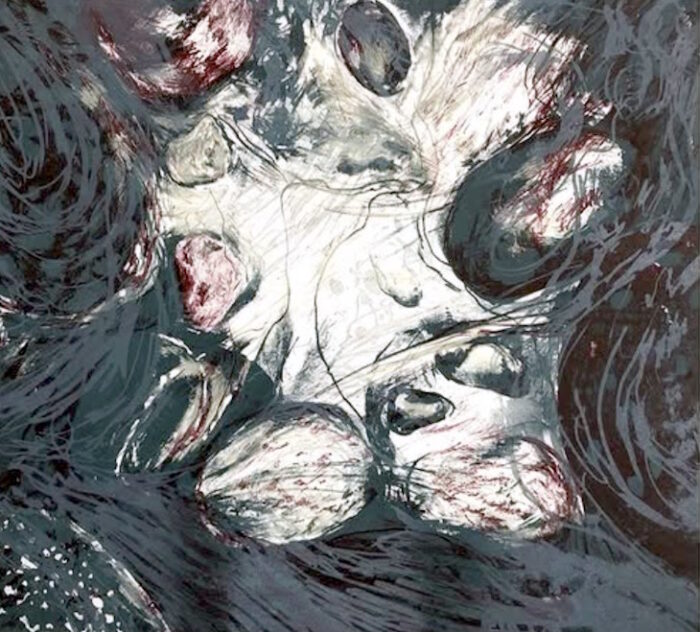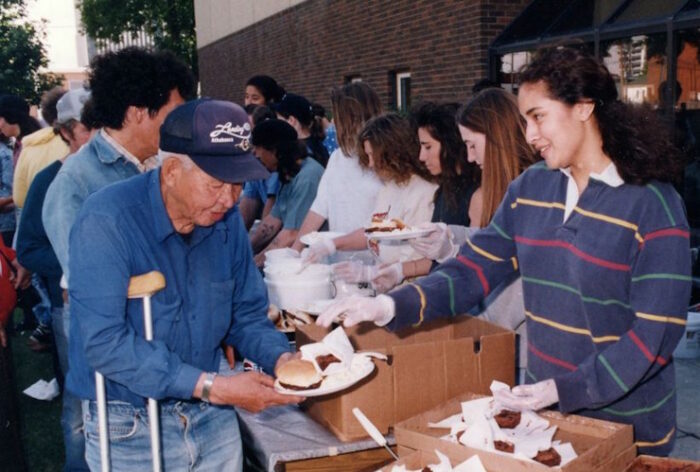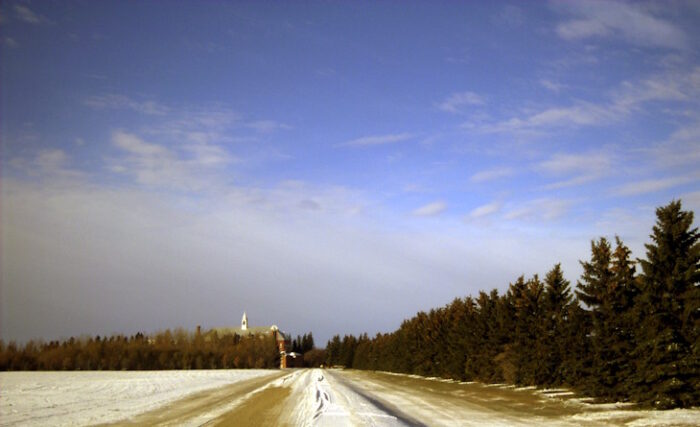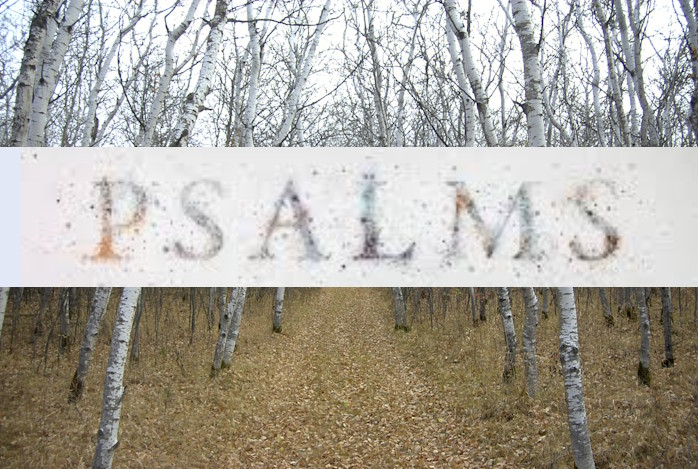
Praise God in the swirling mass of shapes and sounds—this cosmic expanse of spiraling galaxies, shrouded planets, streaking comets, sprinkled and strewn about like wild flowers. Praise Holy Mystery, enshrouded, fecund, actual—creator/creation, distinct yet inseparable.
Praise God in the rust forming over my old Rambler, its wonky front wheel spinning off into the ditch at the end of its working life, now oxidizing in place, the wet air corroding, the freeze-and-thaw pitting, dismantling, and grass rising to encompass and retrieve the rest.
Praise God in the bud. That dart of love aimed at honeyed glands, the glowing breach, the nectar’s release, like a clarion call in some dewy dance hall. Bright tip splits the light of vernal sun and venal night, bud-scale breakdown, leaf pirouette, and shimmy of green.
Praise the Holy in my hometown. Its gravel streets, its Caterpillar grader leaving a raised ridge down Railroad and Main where three towering silos shelter grain, cast shadowy dreams across the coming season. Praise Reg and George, Lydia and Julia, and the beer-stained terry-cloth tables and flecks of tobacco and claps of laughter and the evening coming on like smoke and fresh hope.
Praise God in the mystery of our grass-like lives, brief as a wind gust, with storms of pain and arid tracts of sorrow. Praise the soaring, disabling dawns that reach for eternity, last a second, leave a scar of joy.
Praise God in the pulse of jellyfish, their cellophane bodies, like spirits, guided by currents unknown; praise the honeybee awakening at the whisper of an unfurling blossom; and the scribe awakened to intractable reality, disclosing and furthering human consciousness.
Praise rebel and mystic, prophet and painter, builder and blaster, praise every detonation that cracks our cultural languor and spiritual inertia. Praise the poet that shatters my calcified consciousness through an unflinching head-clearing instress of truth.
Praise the equation: God IS Love. Praise Love, the essential nature of all that is, and all that is changing and emerging. Praise unfinished God, sailing with us into the wind, close-hauling, tacking, sighting the quay.
Praise God with lungs and limbs, volition and action; praise every newborn rave of elation and every late-day waltz of contrition. God is Love; Love is God in evolution.



